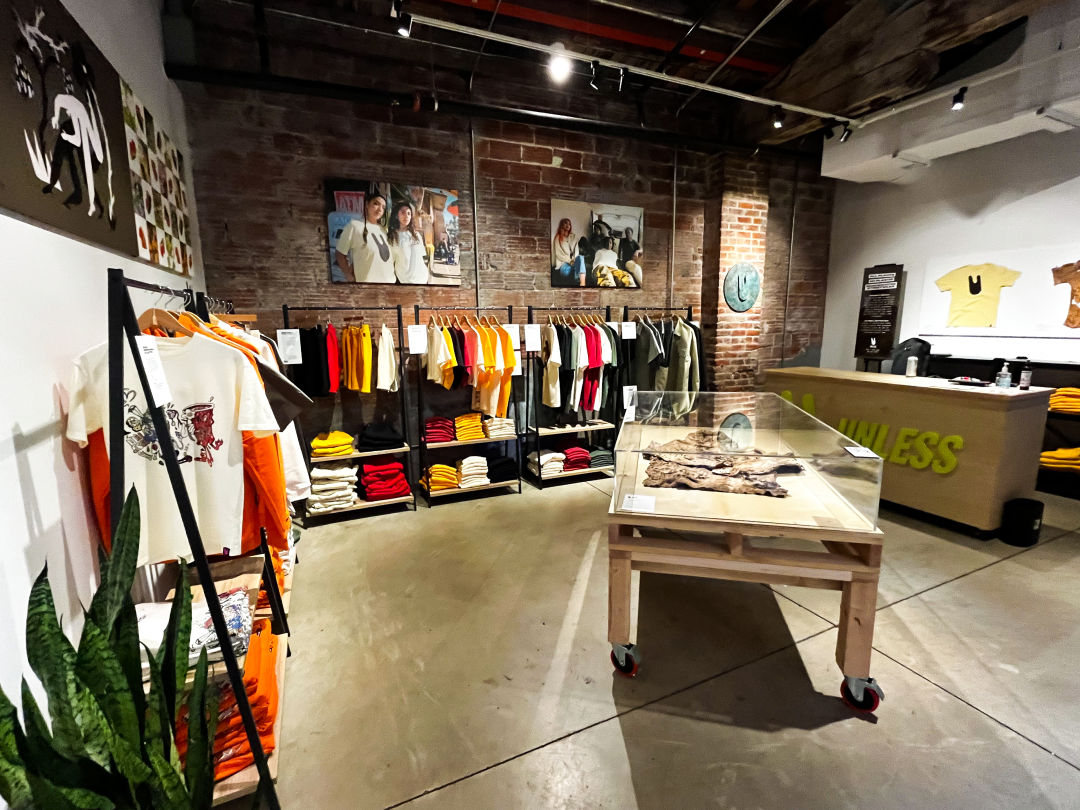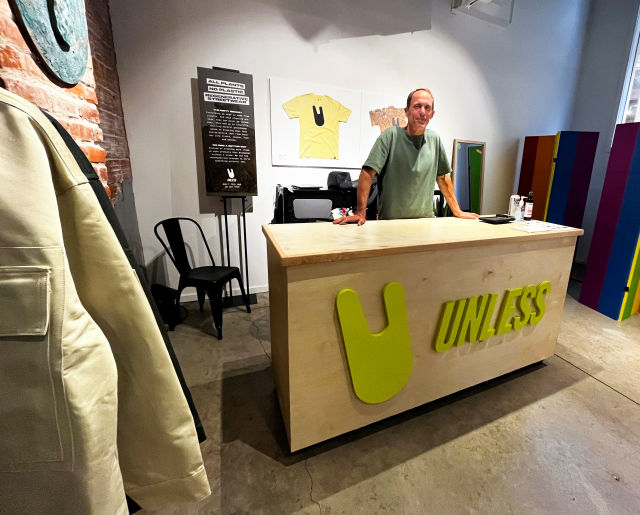Portland-Based Streetwear Brand Unless Collective Sets Up Shop in Union Way

Unless Collective’s new shop in Union Way in downtown Portland
Image: Isabel Lemus Kristensen
When you’re out clothes shopping, you don't expect to find a decomposing hoodie sitting in a storefront's place of pride glass case. But this display at Unless Collective, set among items like oversize hoodies and graphic tees that feature designs from up-and-coming local artists, and are made with water-based dyes and inks, defines the streetwear brand’s ethos of making items that are 100 percent plant-based. All of its products are made to biodegrade—but only when you’re done with them, of course.
The Portland-based start-up, which launched in November 2021 and just opened a shop in downtown’s Union Way, is the brainchild of former Adidas executives who wanted to find a solution to throwaway culture and plastic waste. Their answer? Apparel that can safely go back to the ground. Each garment is built with plant-based materials like cotton thread or corozo nut shells from Argentina that leave zero plastic waste behind.
Some 11.3 million tons of textile waste, including discarded clothes, ended up in landfills or incinerators in 2018. But most of the clothing typically found in stores involves petroleum-based materials like polyester or nylon (a.k.a. plastics) that do not biodegrade. Instead, discarded clothing can leach toxins or break down into microplastics that wind up in our oceans and food. Even a cotton T-shirt might not be entirely biodegradable when you take into account the material used for its labels, lining, or stitching.
"We set out with everything from the end first,” says Eric Liedtke, CEO and cofounder. Instead of a landfill as its final destination, a top from Unless is meant to return to the soil. The brand even notes that it’s OK if your dog buries your gear in your backyard. (You can also send your worn gear back to the company to be recycled or composted and receive credit for your next purchase.)

Eric Liedtke of Unless Collective
Image: Isabel Lemus Kristensen
Liedtke says the brand’s team “had to solve for every little thing,” from the fabric of a crop top to the waistband of terry shorts to the seams of a work shirt. It's a direct rebuke to the broader fashion industry's failure to reckon with what happens to a product when a customer is done with it.
“The key is we don’t want people to feel bad. Ultimately, I think we are consumers, and we want to participate in acquiring things,” Liedtke says.
While the brand has completed the first phase of making sure its apparel “degenerates into nutrient rich soil,” Liedtke says Unless still has a long way to go on its “innovation roadmap,” such as expanding its product range to footwear, another generator of waste in fashion. Liedtke even envisions using composted clothing to create food gardens. “Why can’t we use clothing to solve?” he says. “I think there’s something really rich about using your clothing to grow food.”




